Is it possible to travel to Ukraine under the conditions of the Russian war of aggression? Whatever, at some point in autumn I decided to go. From 20 to 30 December 2022 I was in Lviv, Ternopil and the surrounding area. I wanted to know how my friends were doing – my long-time travelling companions and the activists who care for the Jewish heritage in Galicia. And also Anna, who fled the war and has been living with me since March, wanted to see her boyfriend and her mother again. But beyond that, there was also a very simple reason for this trip: I was homesick for Lviv.
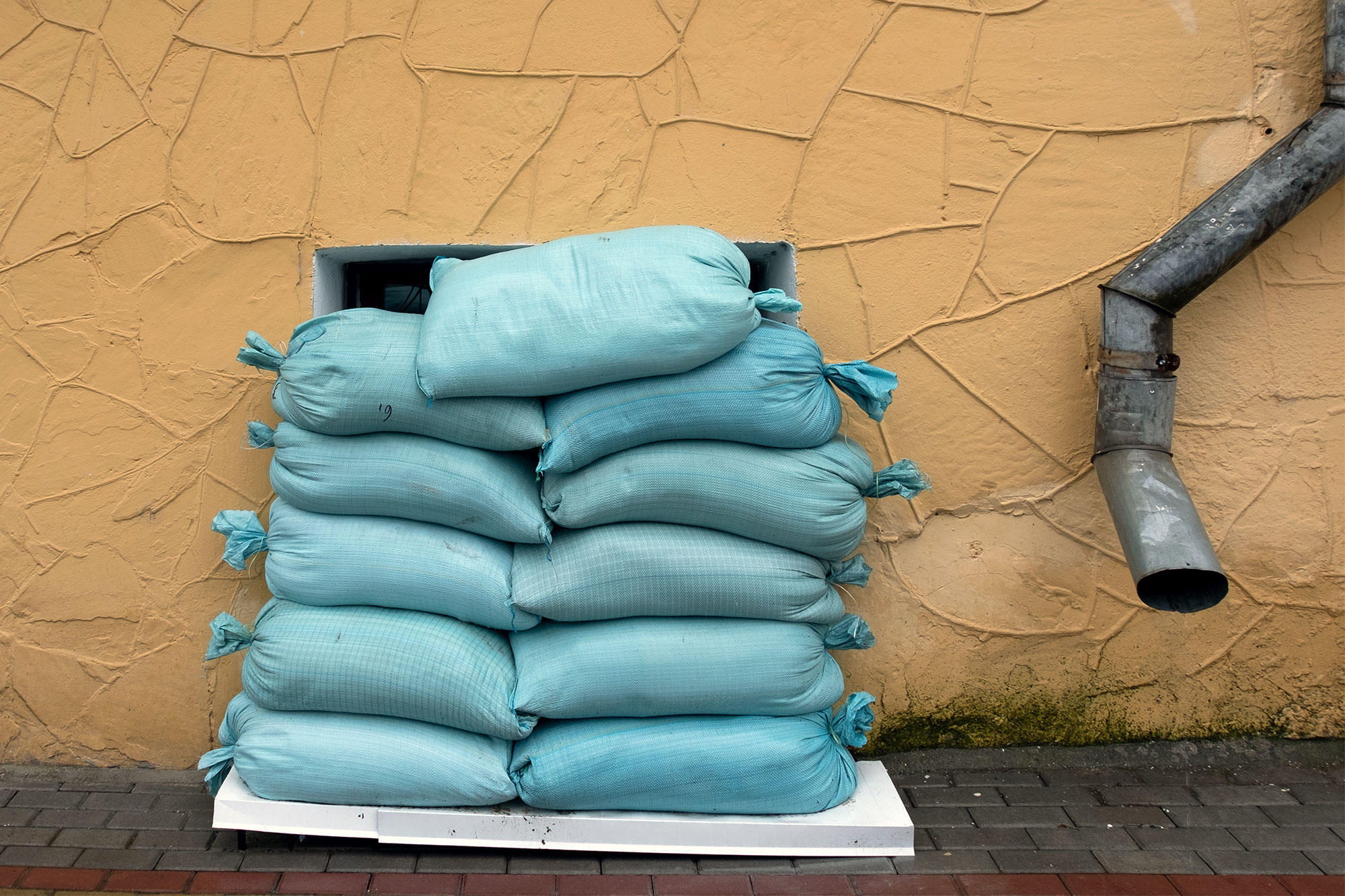
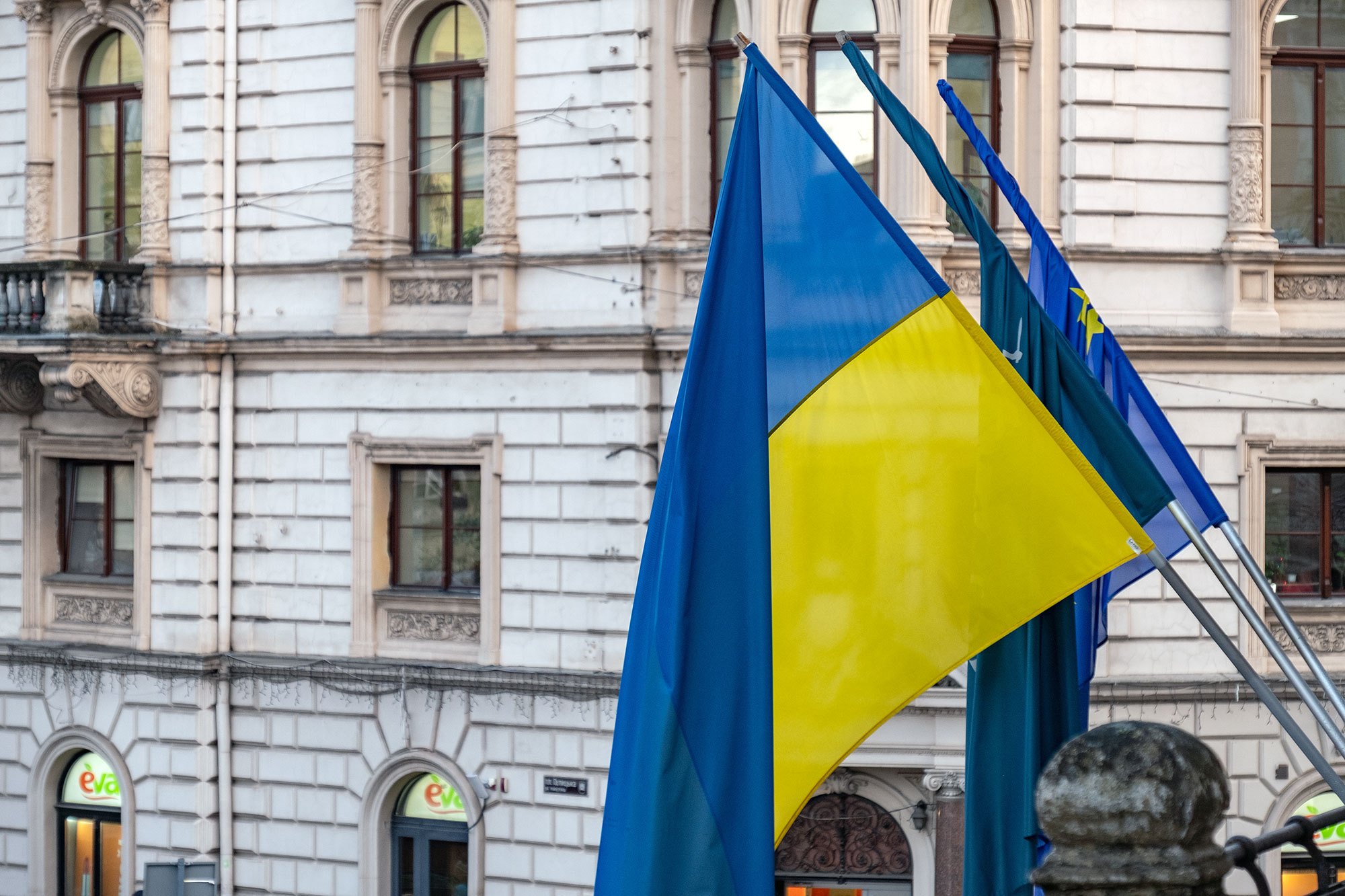
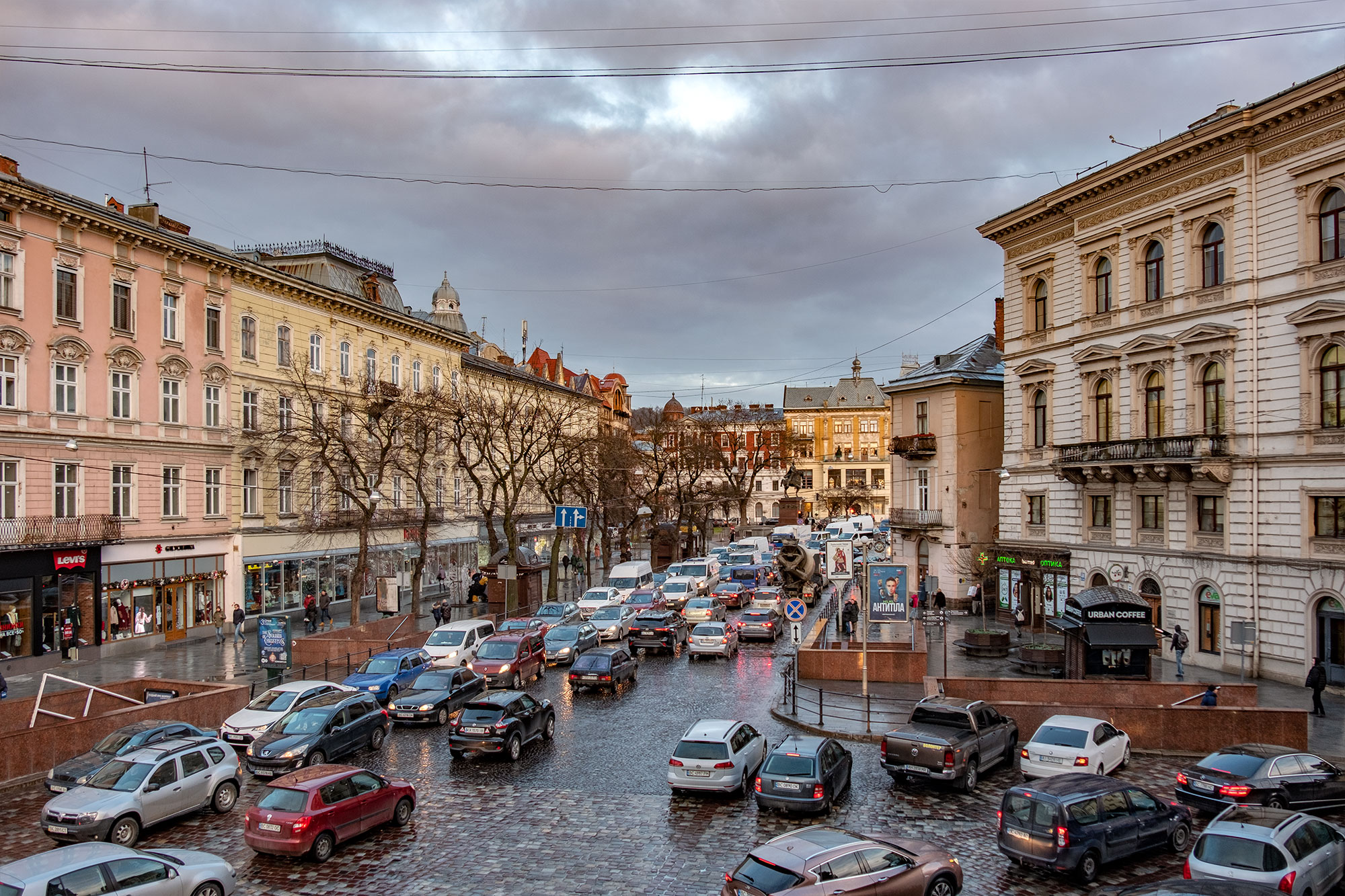

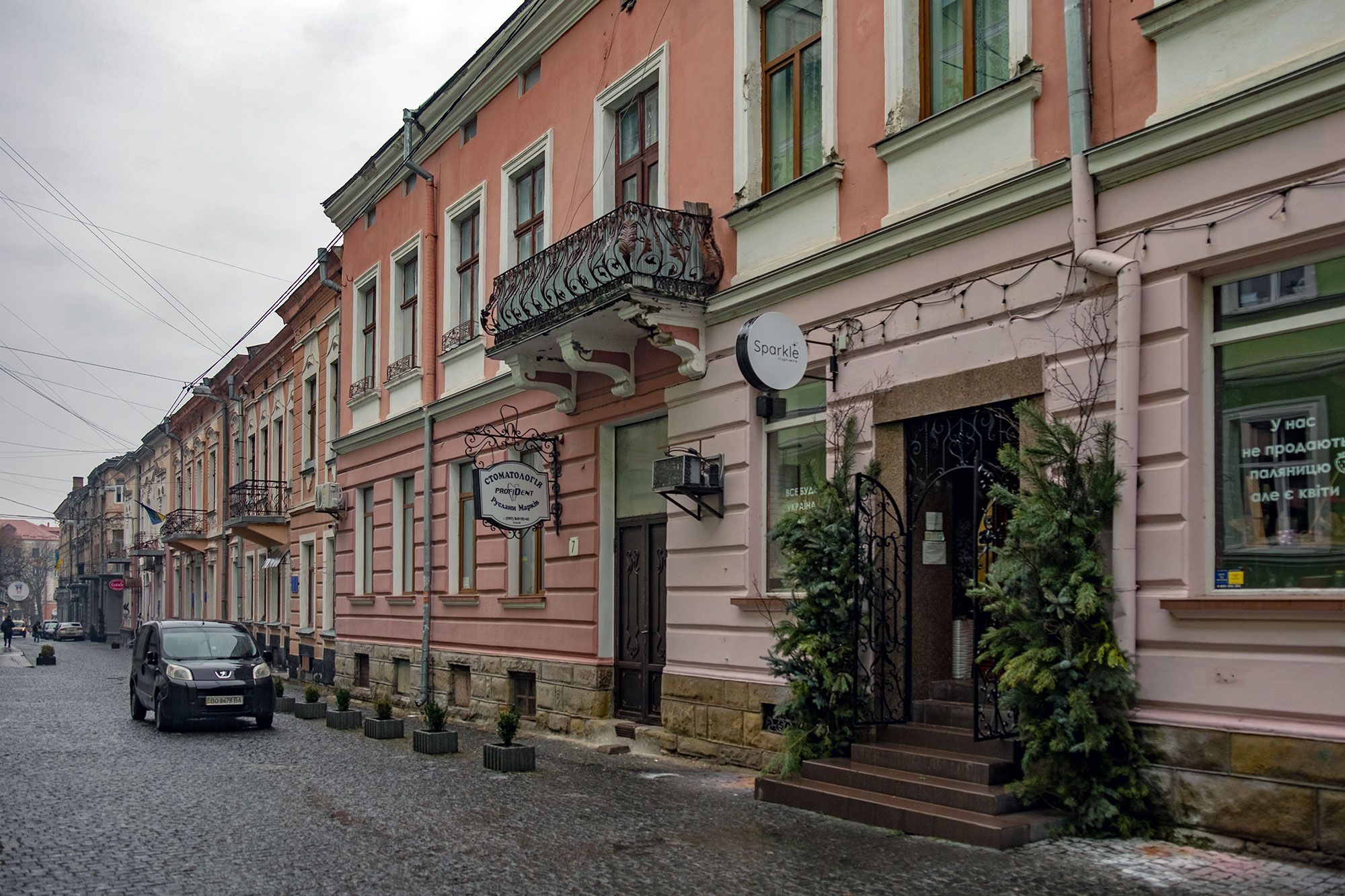
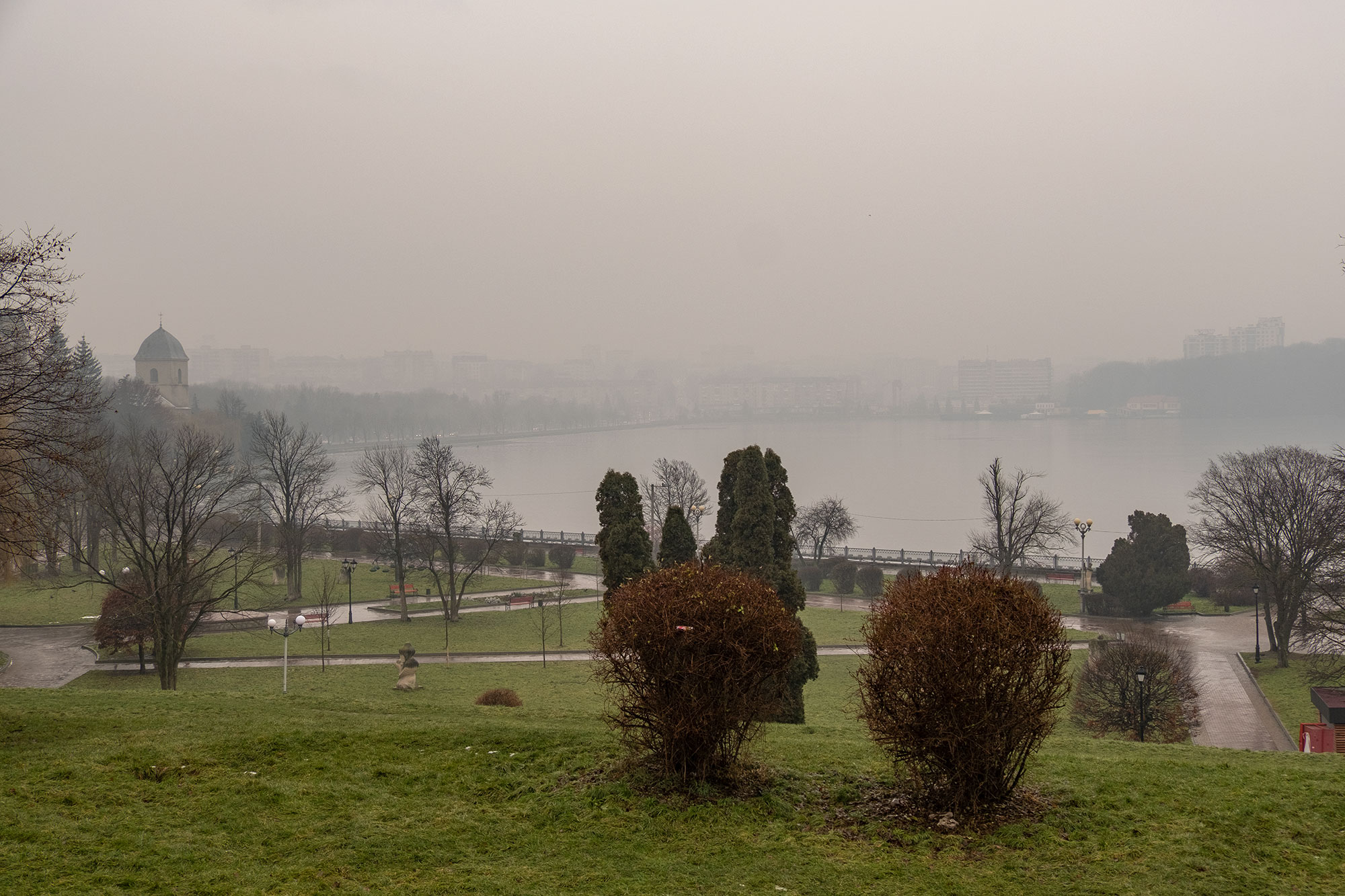
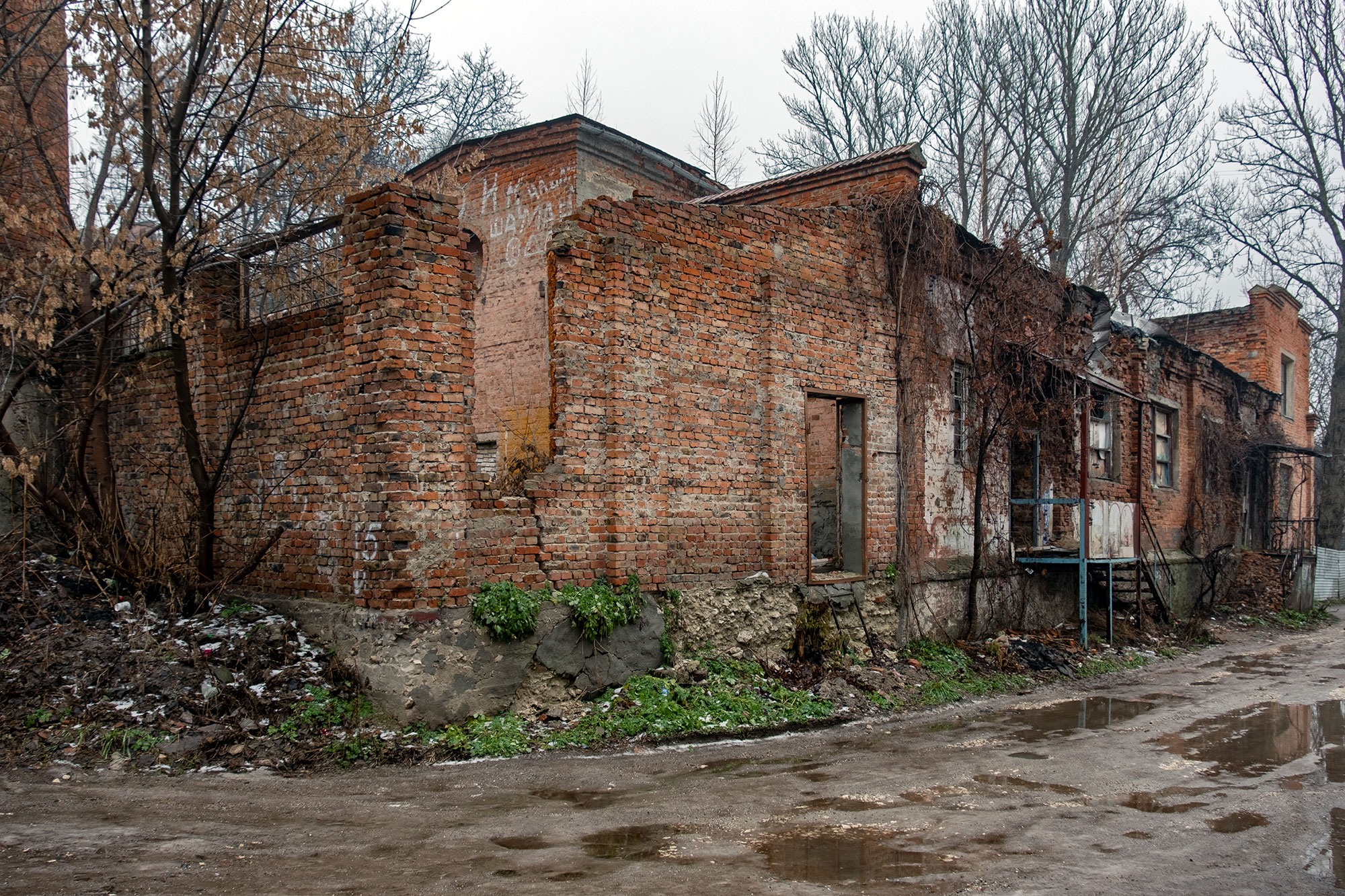
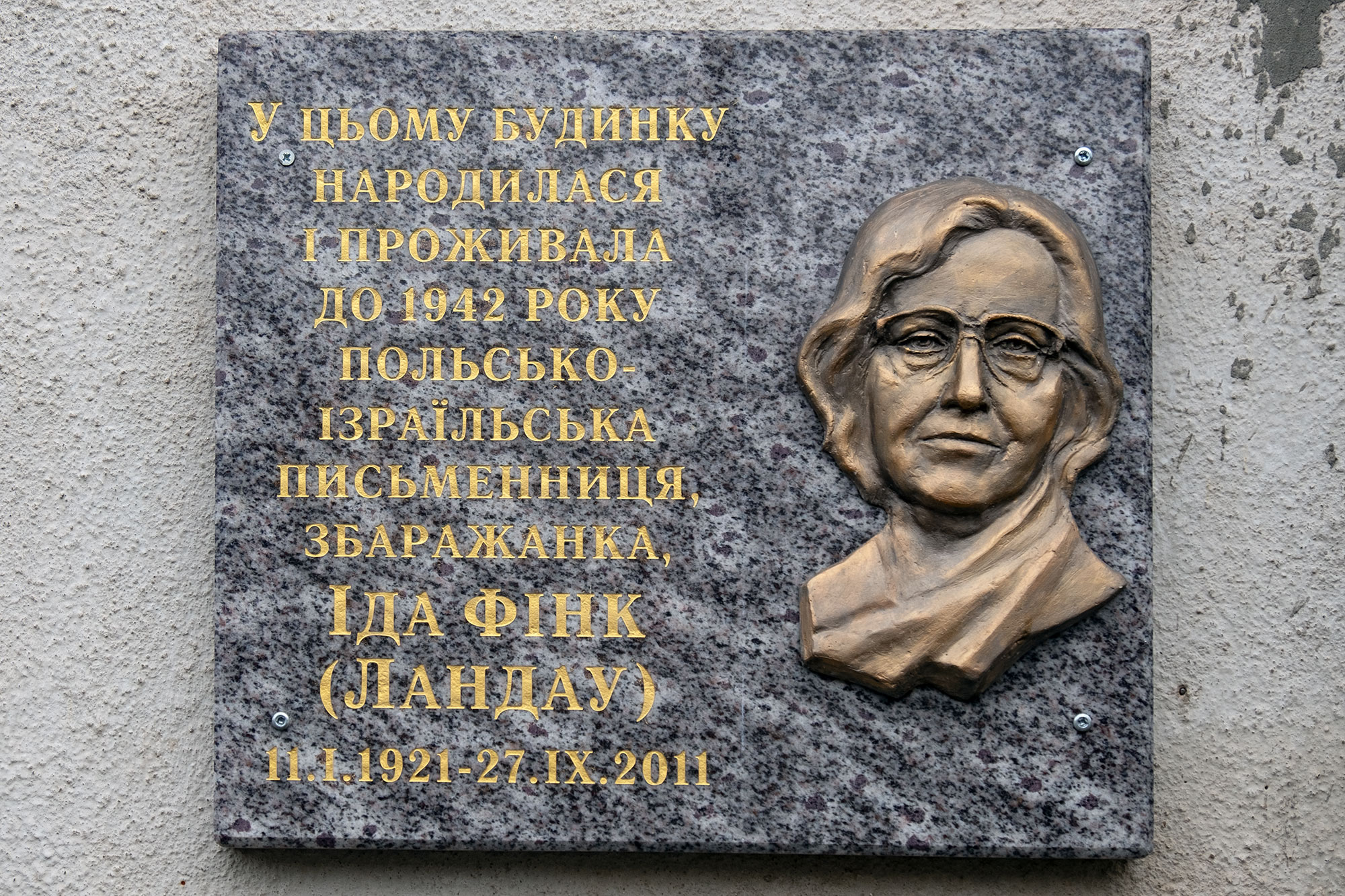
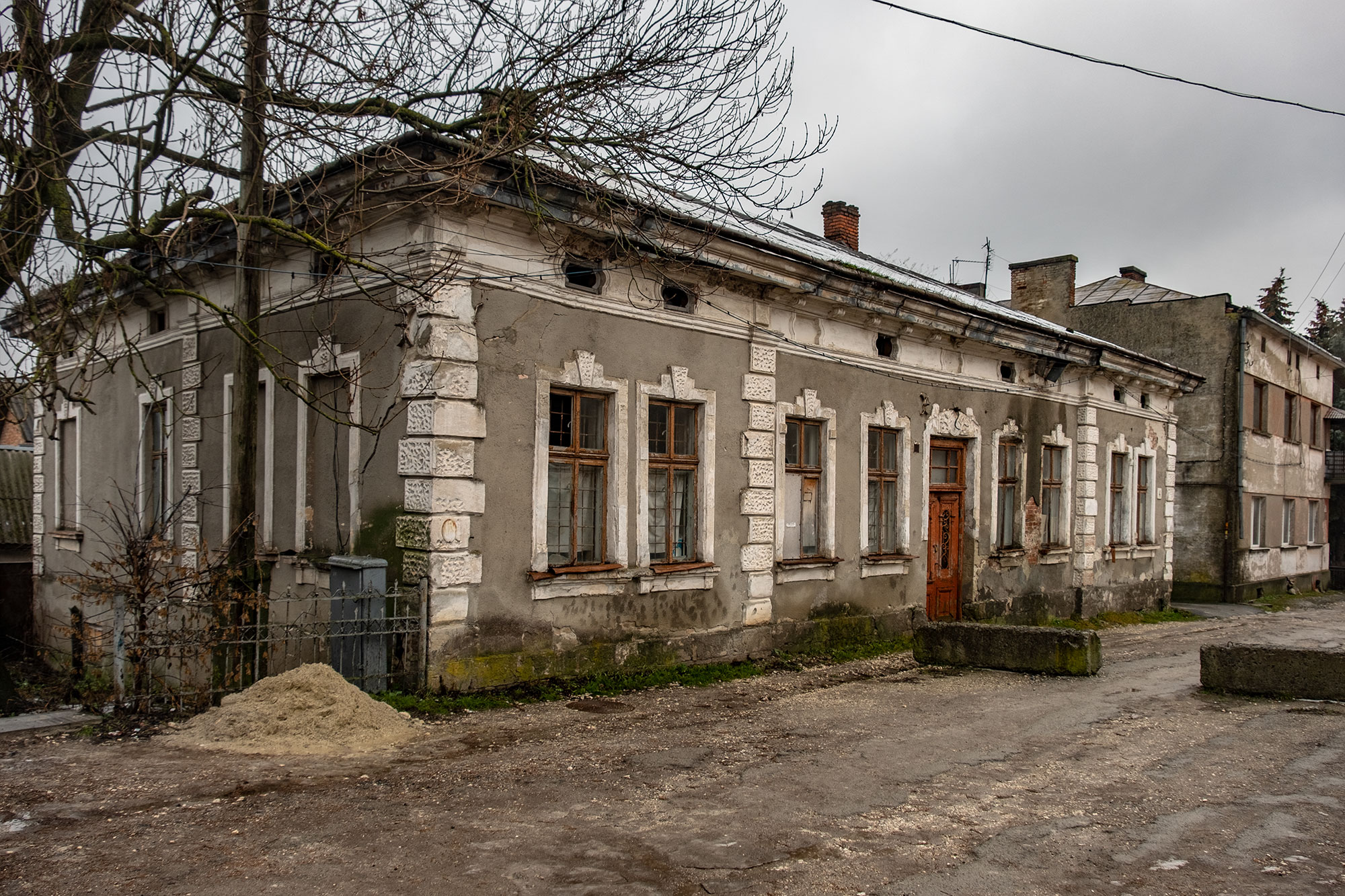
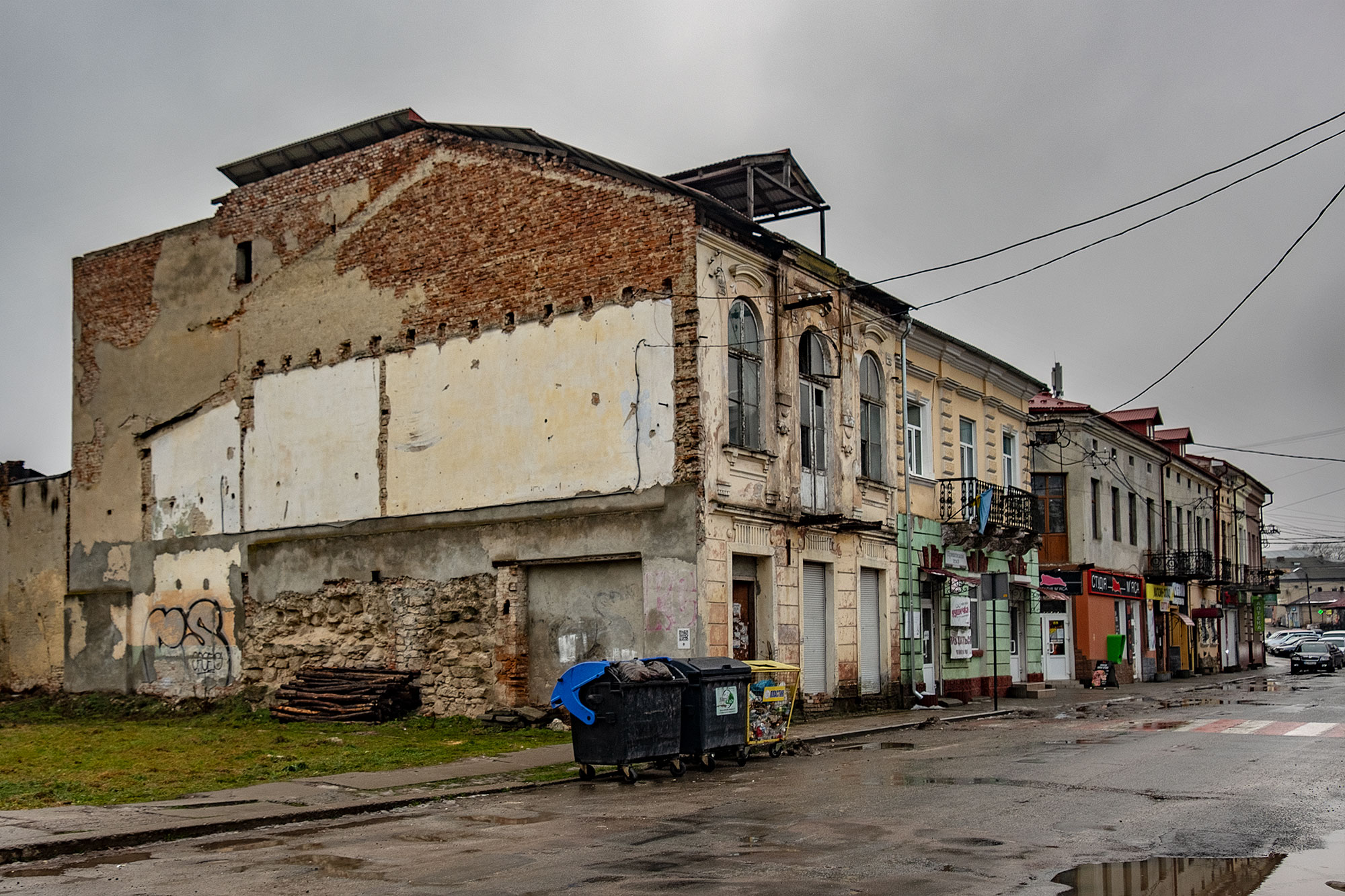

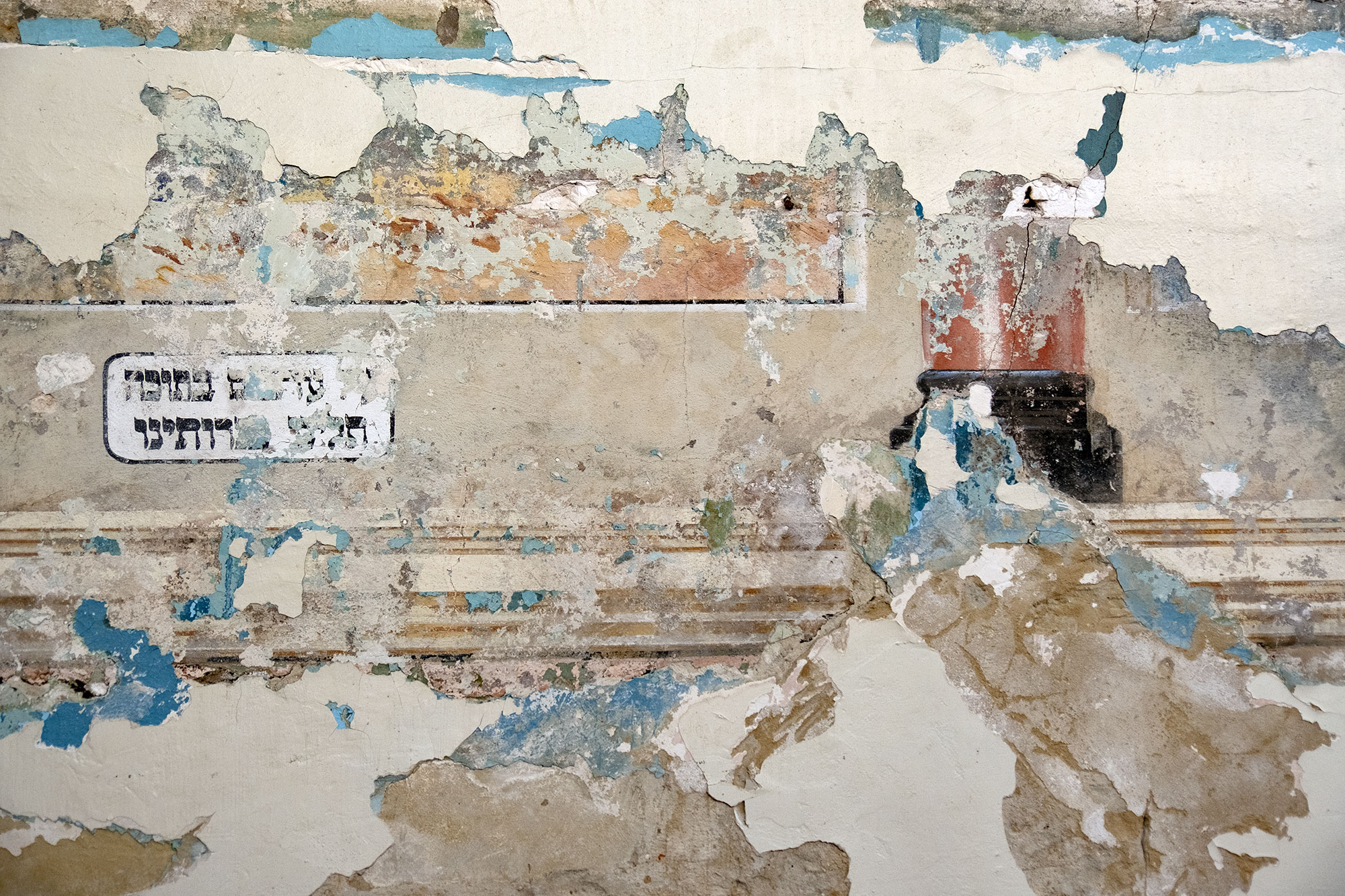
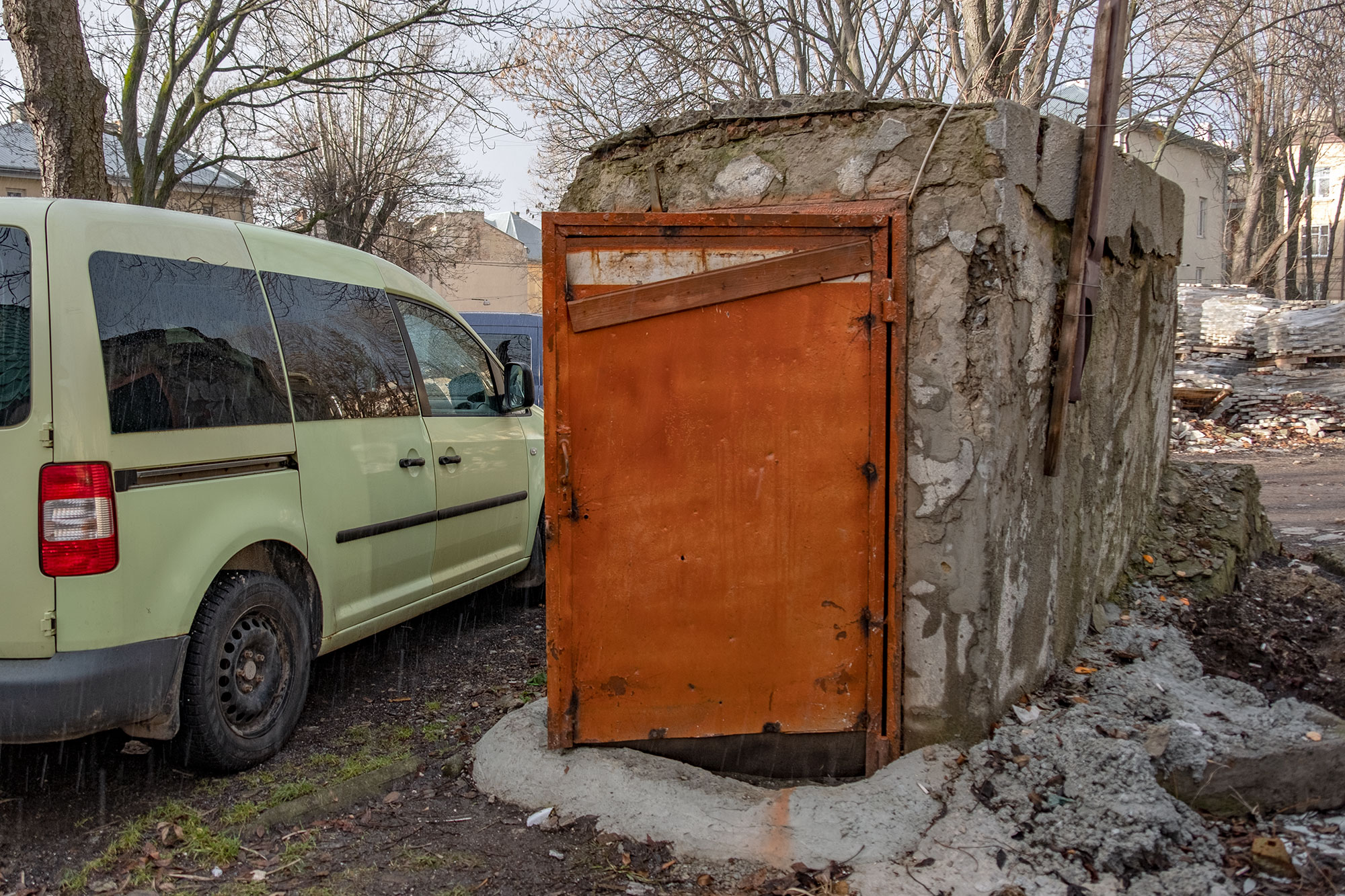
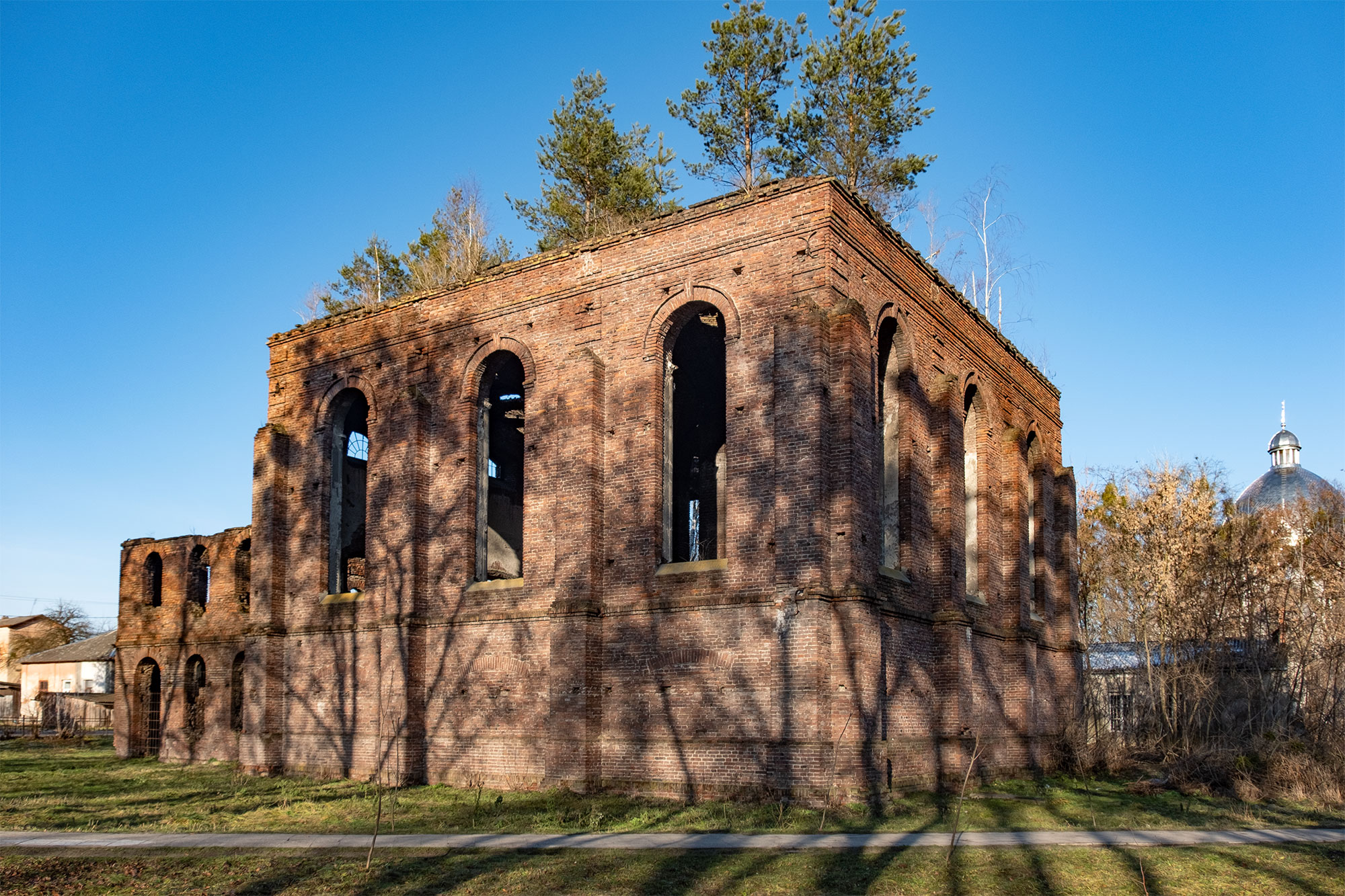
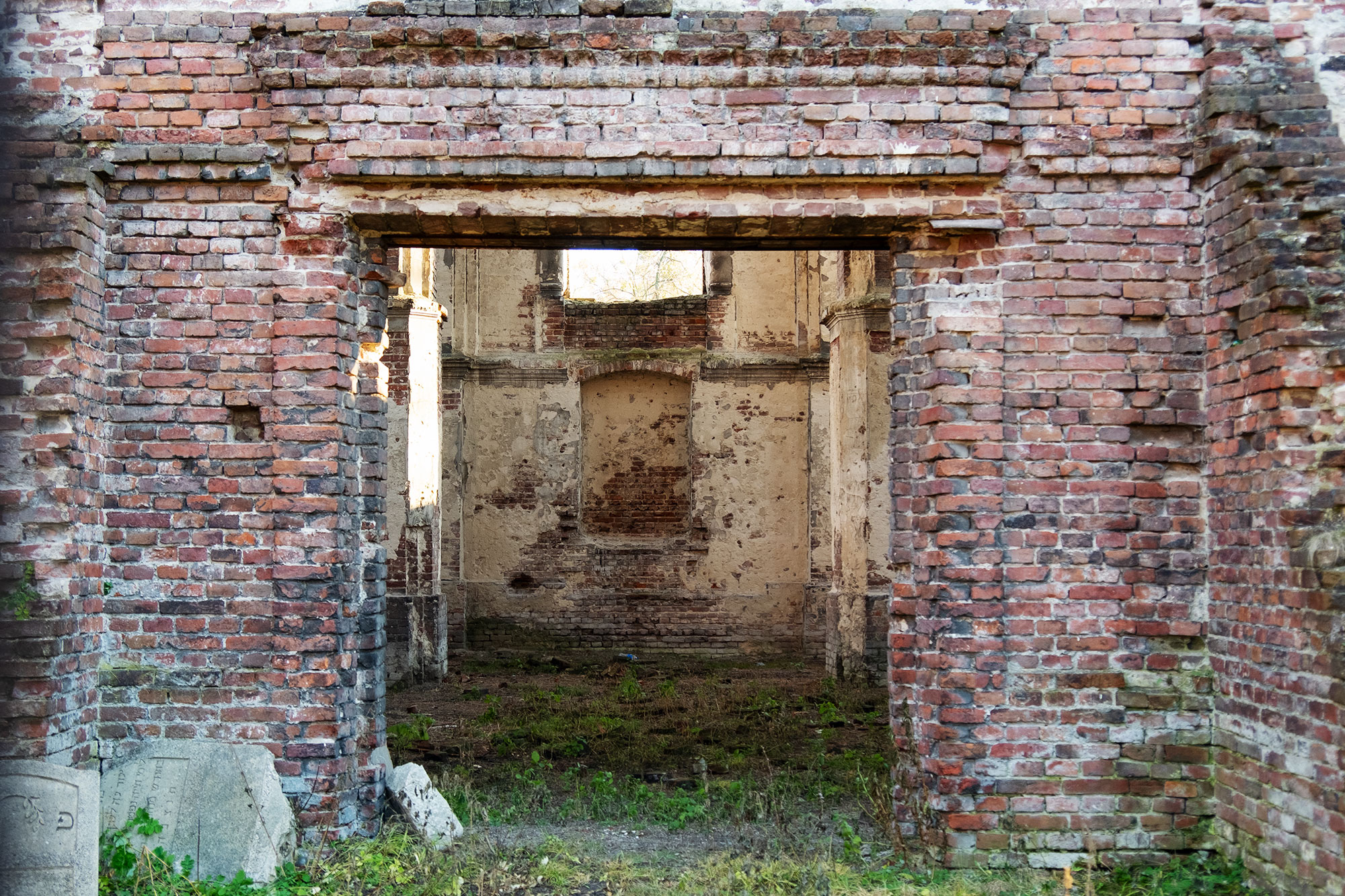
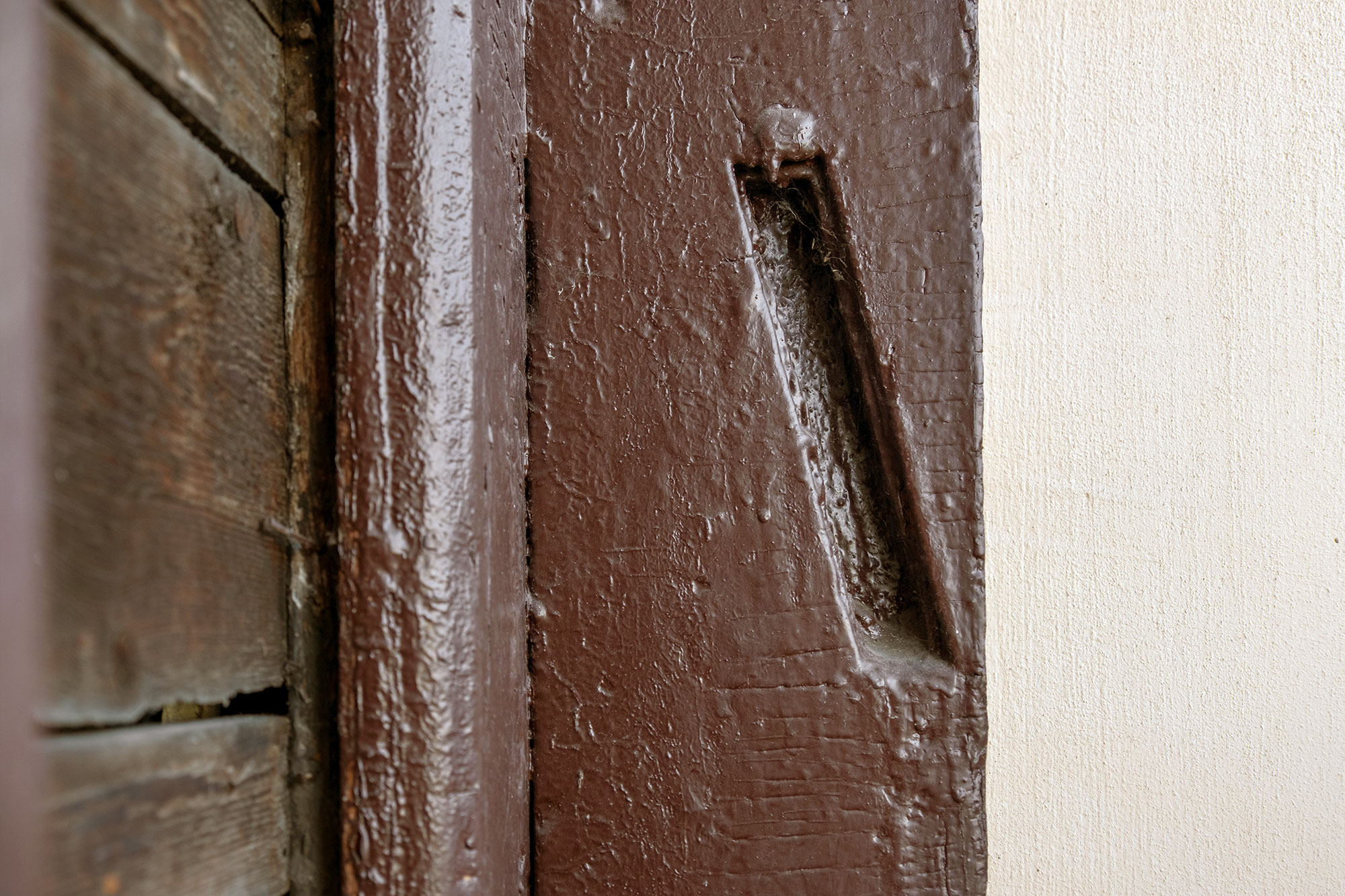
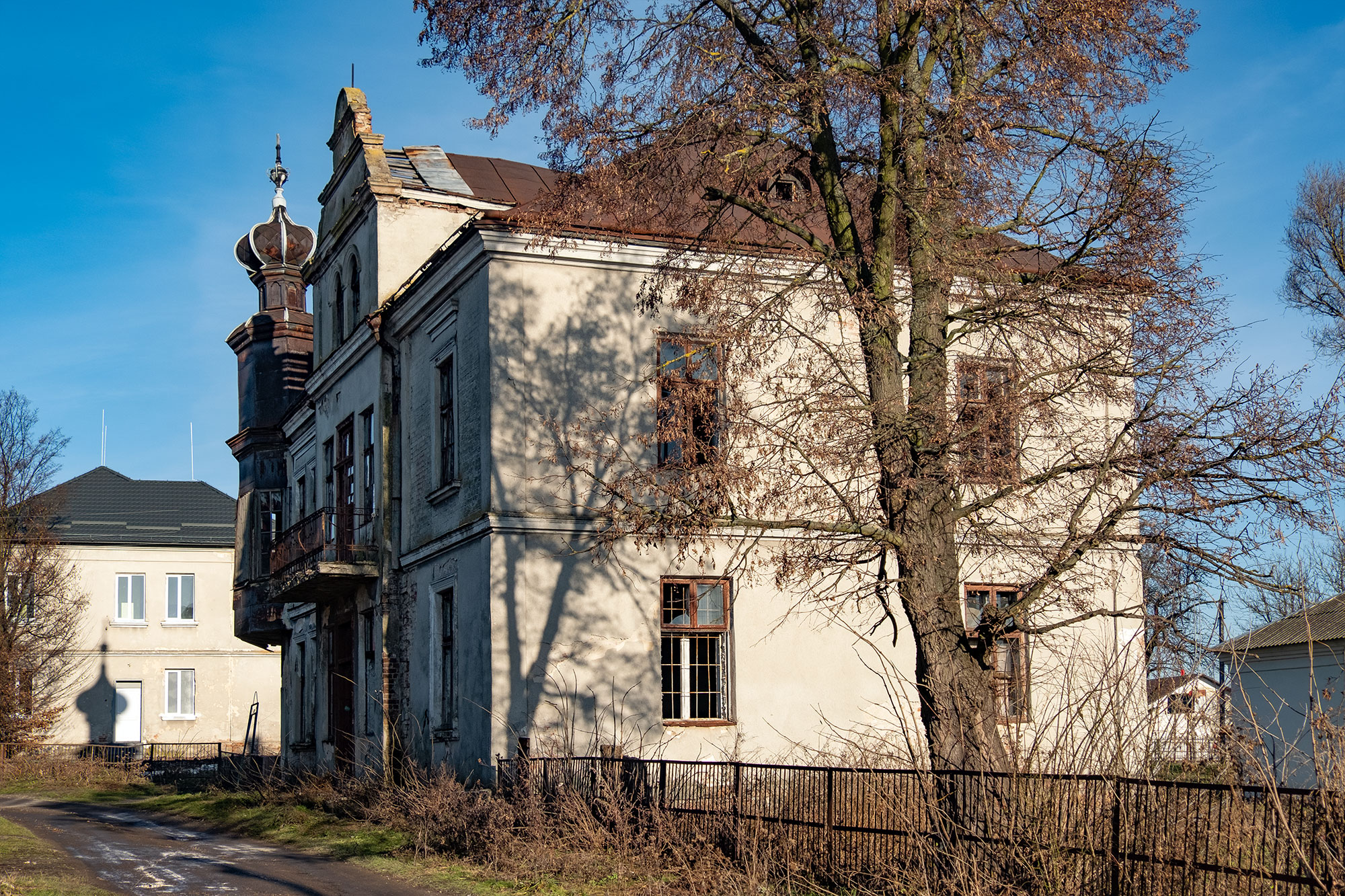
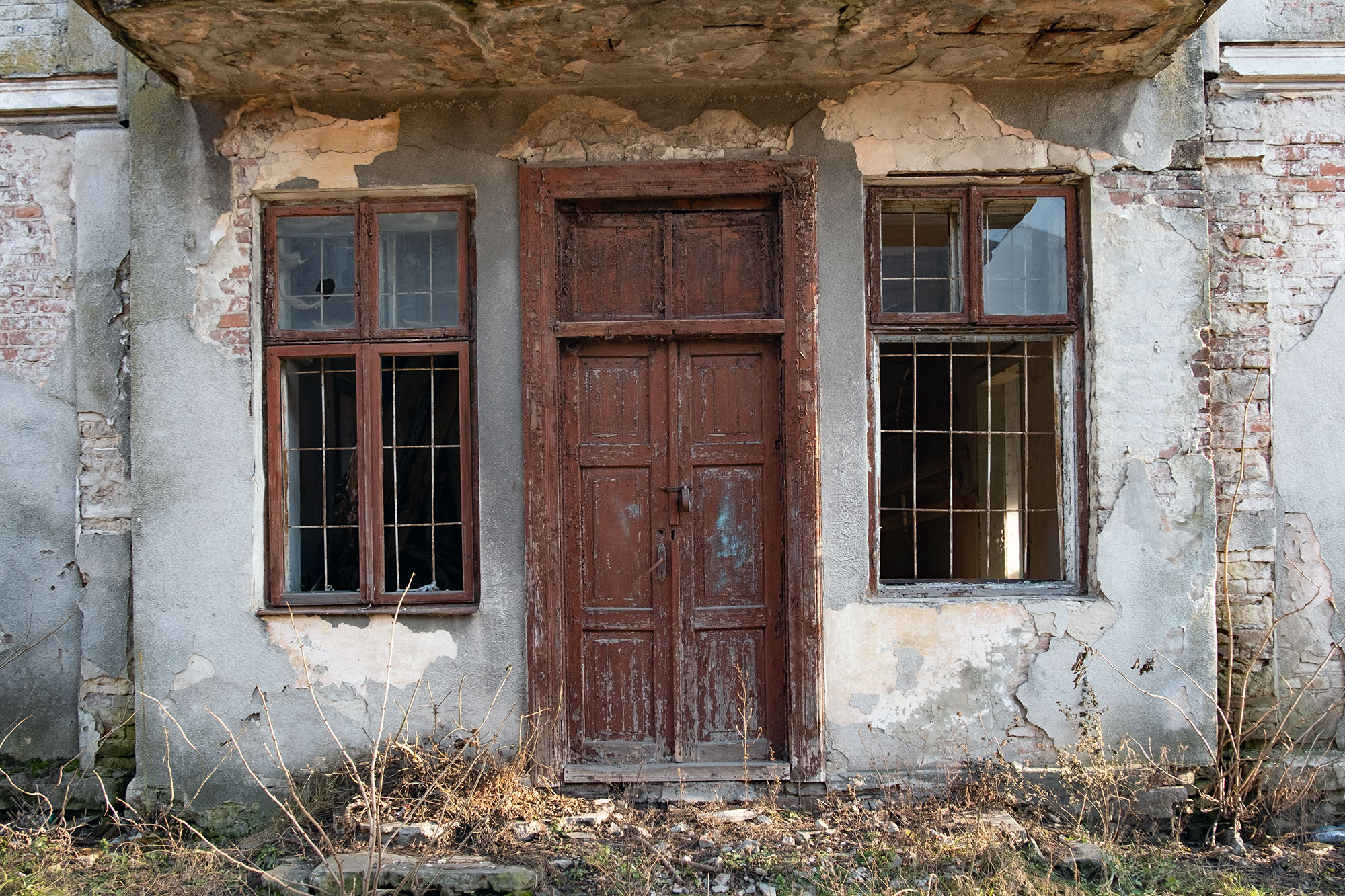
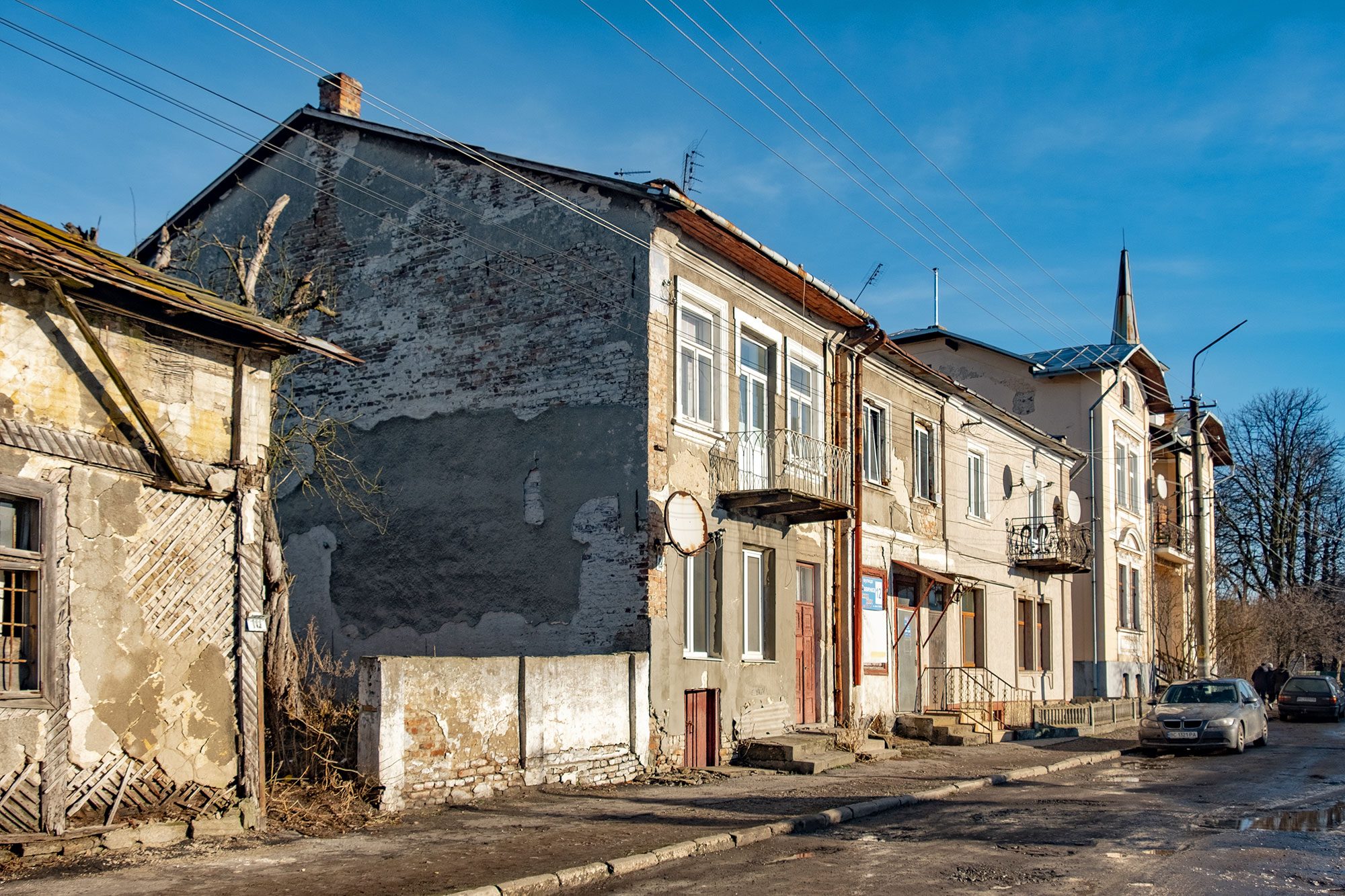
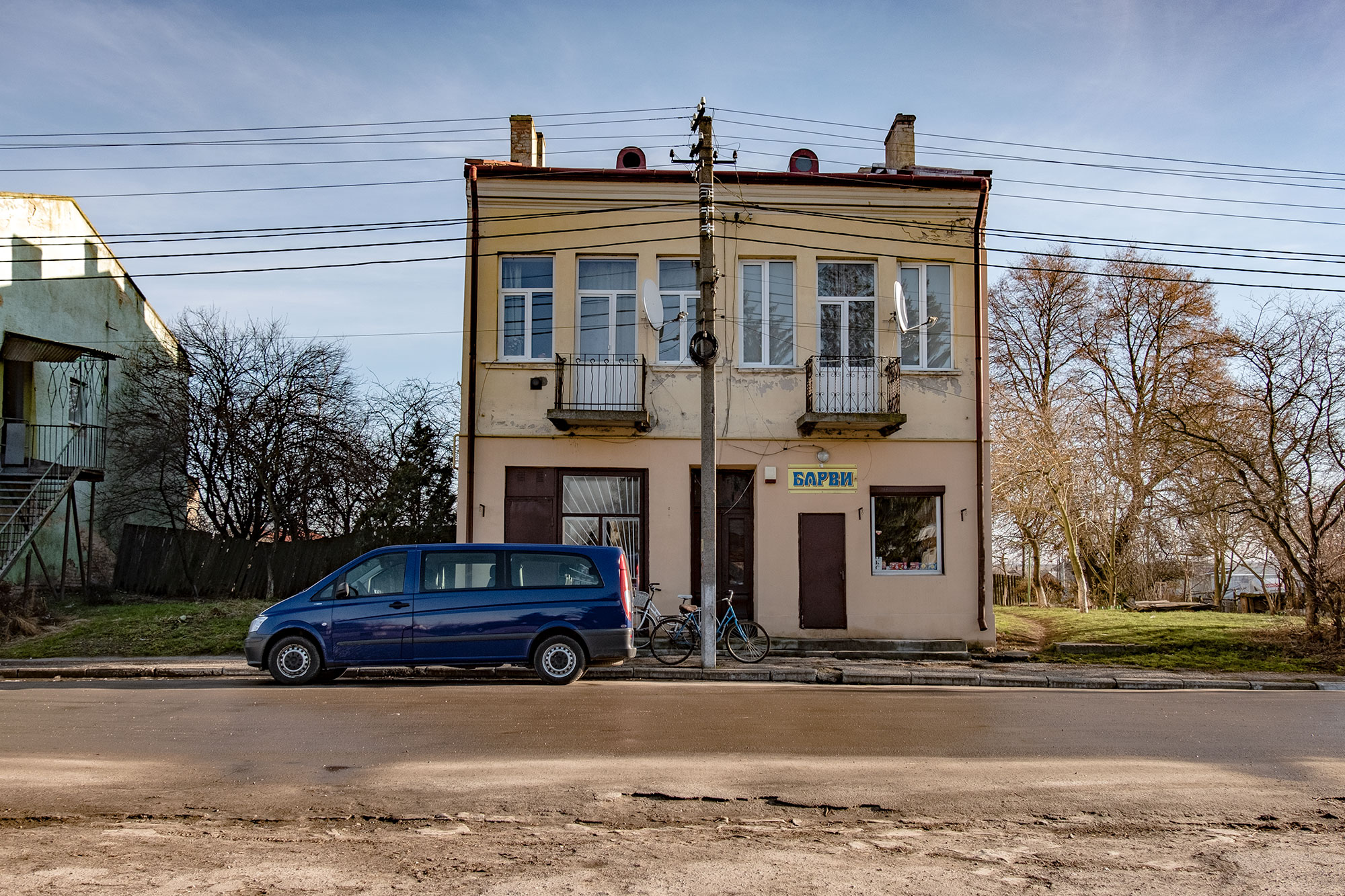
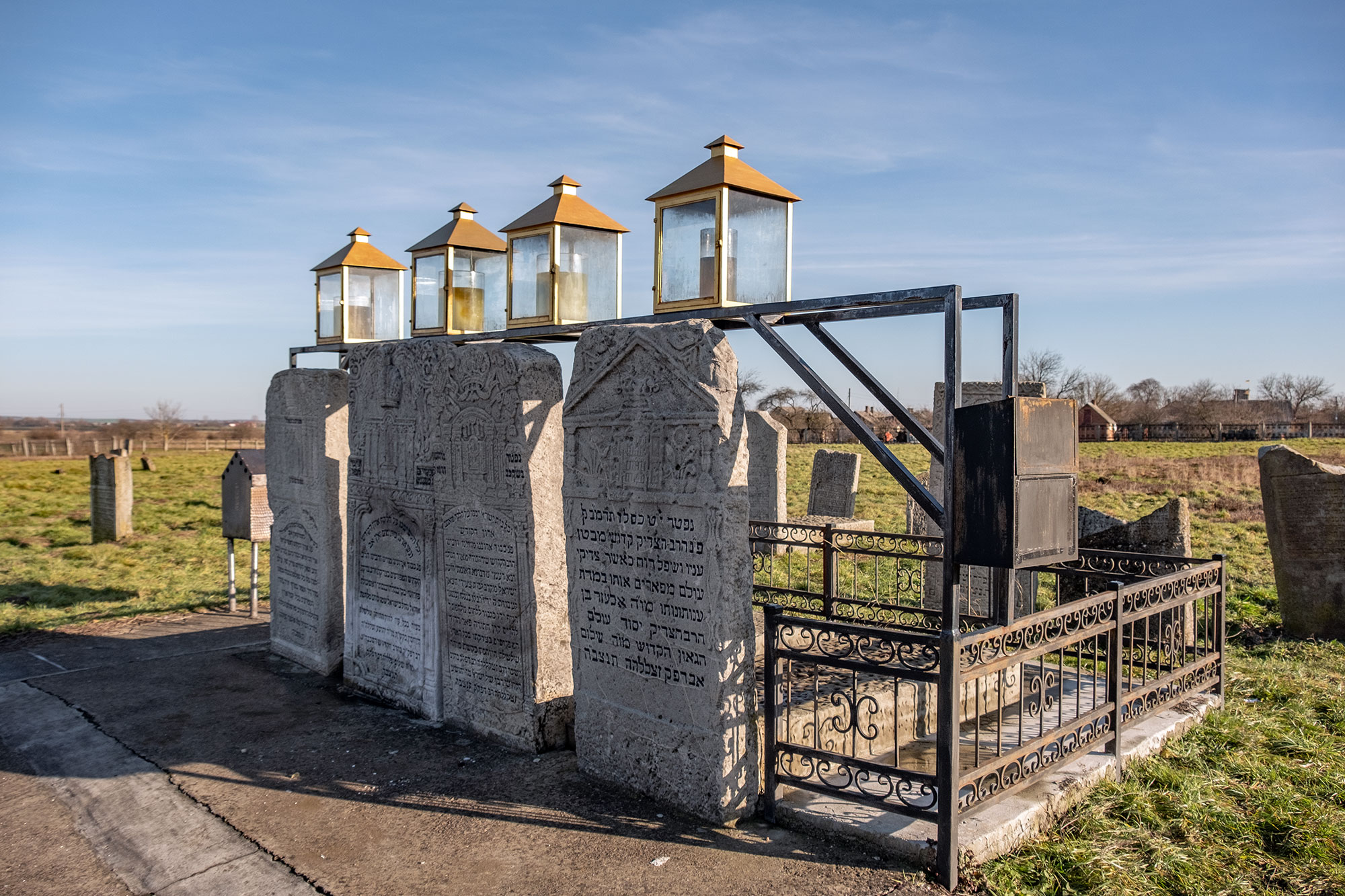
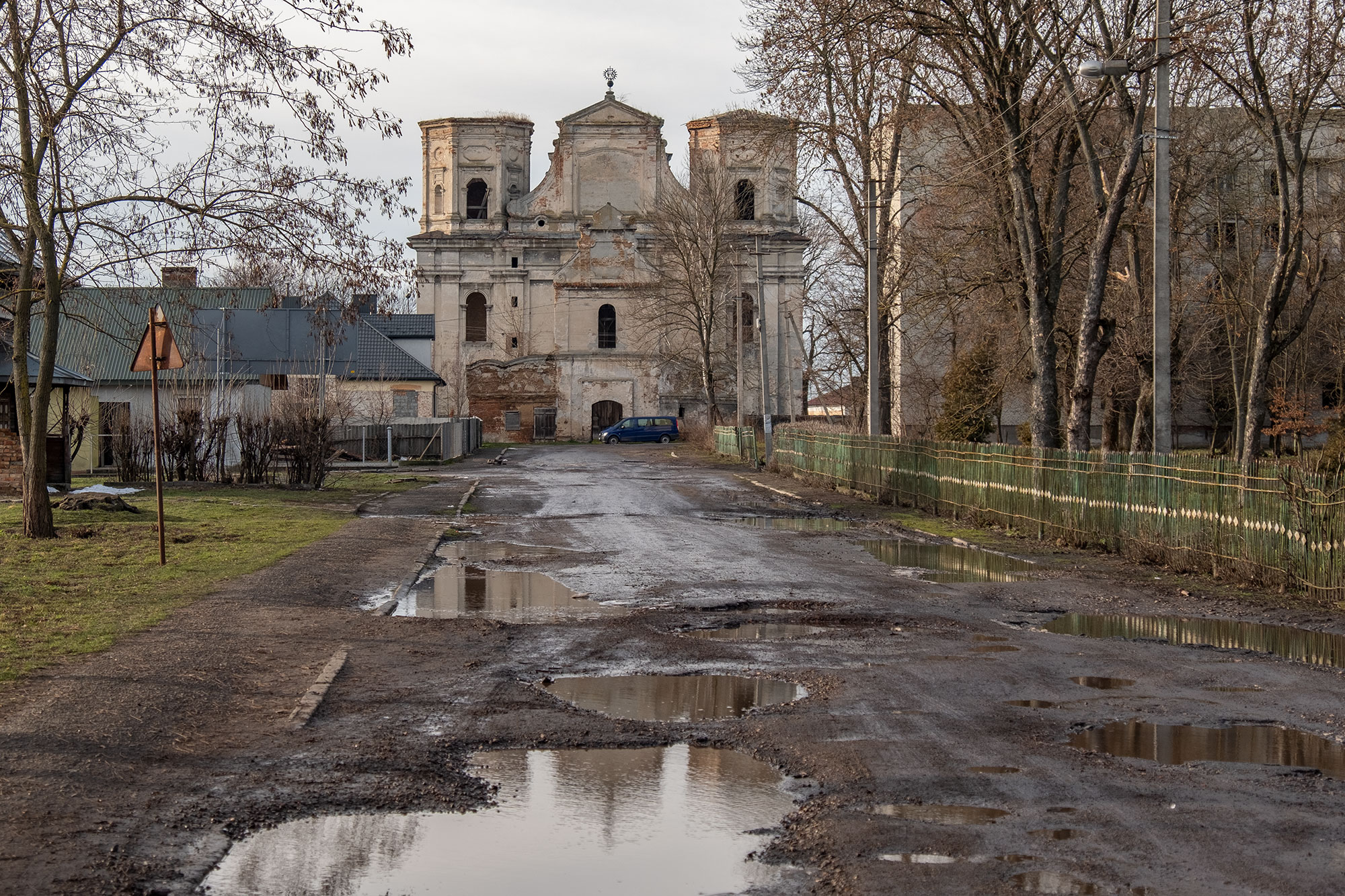

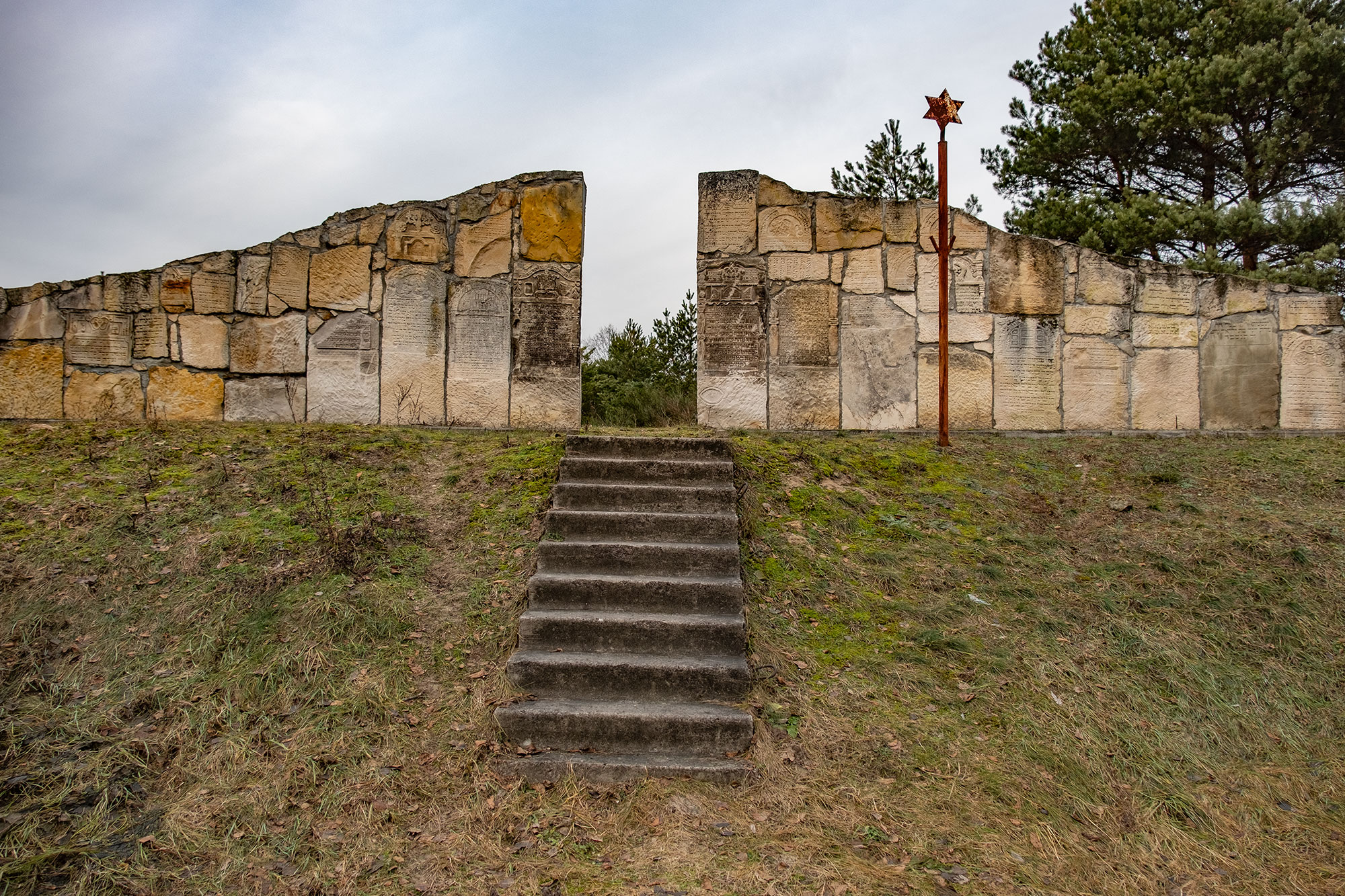
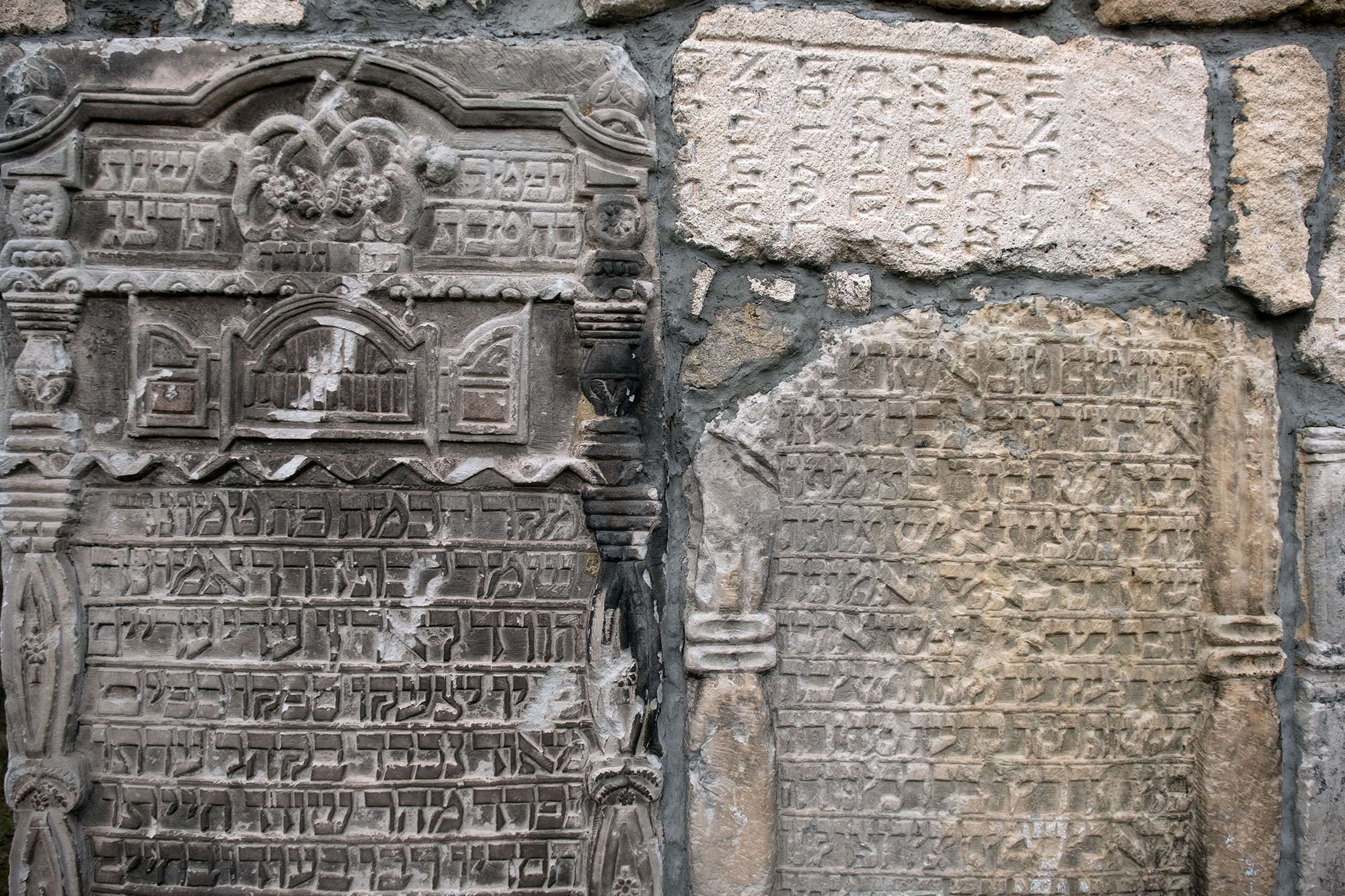
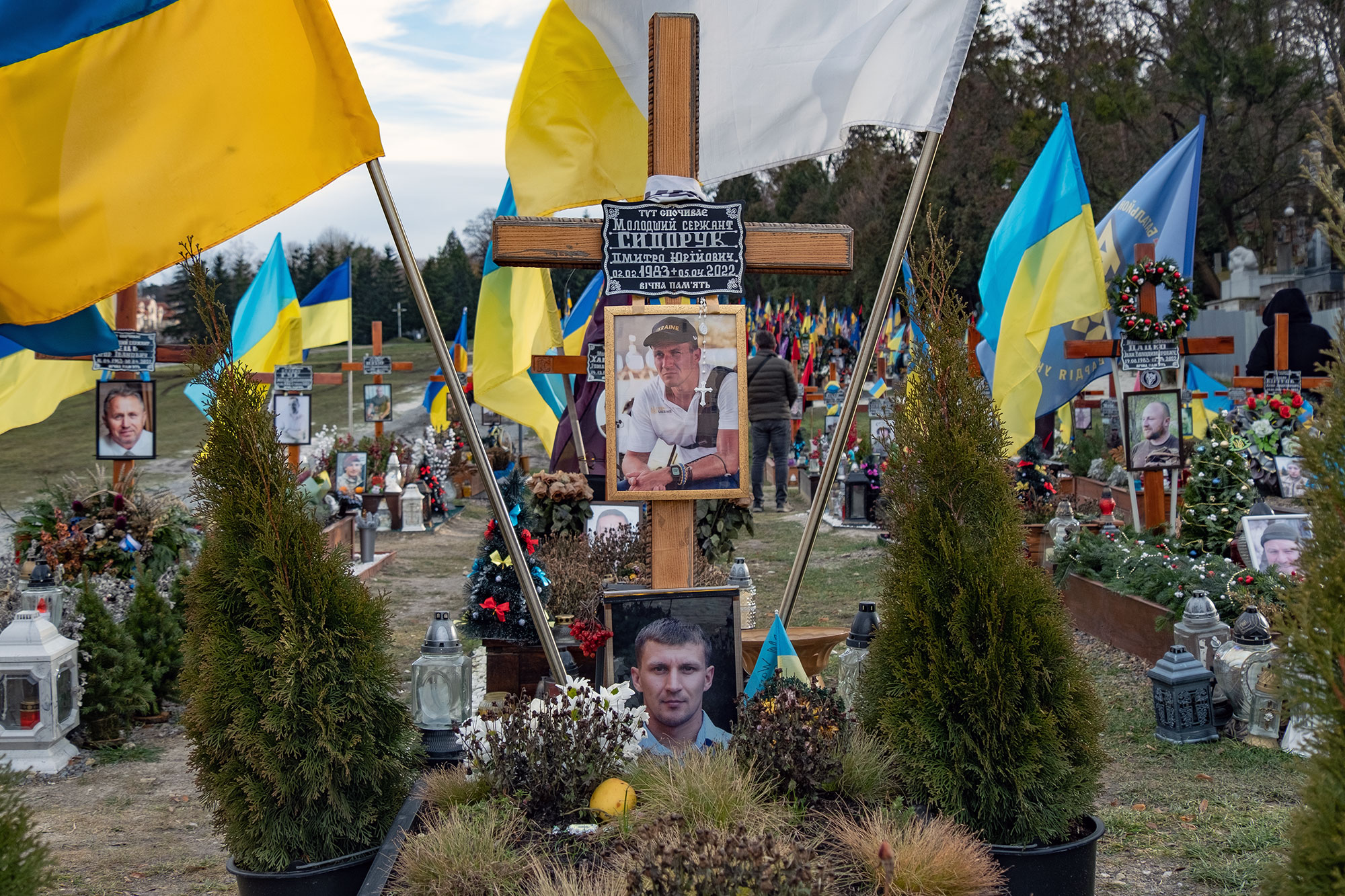
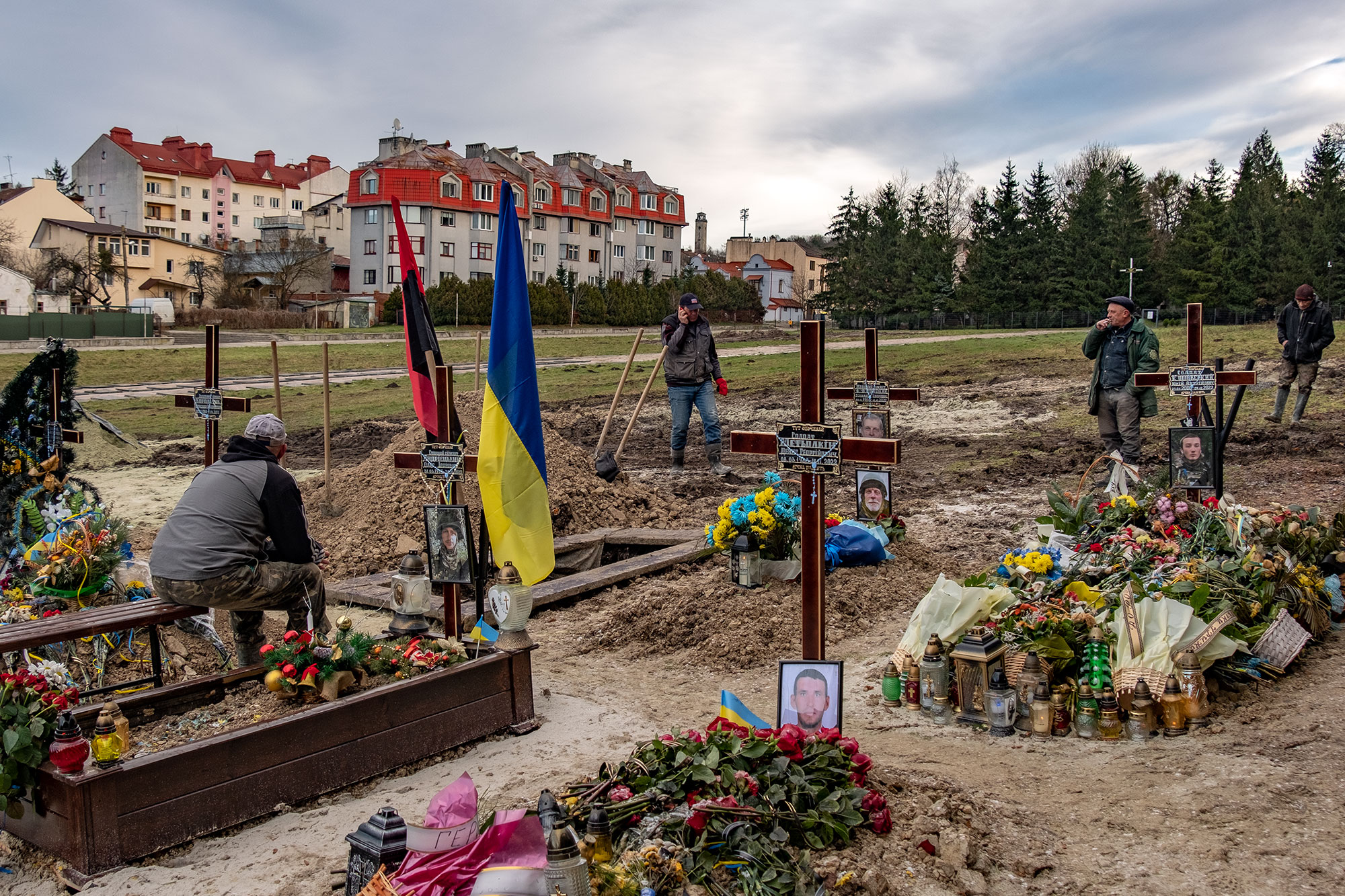

20 December 2022 Our bus starts early in the morning at Cologne airport. It is supposed to take us to Lviv. Other passengers are also waiting. Anna asks if they know where the bus to Lviv will stop. They shake their heads, say they are going to Odessa. Others want to go to Ivano-Frankivsk. Finally, a bus appears with a sign saying it is going to Kherson. It is the bus everyone is booked on – no matter what the destination of the journey is. The drivers stow the luggage, check the tickets and then we are off.
The bus is not bad, but we are asked not to use the toilet. There would be a break every 4 hours, the drivers say. In fact, it is every 5 to 6 hours. But first there are many stops. In Düsseldorf, Duisburg, Dortmund and Essen, more passengers are taken on board. Again and again, the drivers leave the motorway to take more luggage on board at rest stops. The passengers are almost without exception Ukrainian women, some of them with children. I am almost the only one with a German passport. Only one young couple also has German citizenship. The young woman studied in Germany and stayed. With her German boyfriend, she is going to visit her relatives in Ivano-Frankivsk. It is already dark when we reach the Polish border.
21 December 2022 We reach the border with Ukraine around midnight. There is little border traffic at this time of night. We hope to be in Lviv earlier than announced, because it is only a short distance from the border to the city. After 3 ½ hours we have passed all controls. That was a quick border crossing, we are told. Again we hope that we will reach our destination quickly. But then everything slows down. Our bus stops again and again, luggage is unloaded and received. There are also repeated stops in the suburbs of Lviv. After all: our bus is absolutely on time.
Lviv, still at night, looks unchanged at first glance. But along the access roads we see the checkpoints of the territorial defence everywhere. There are positions made of sandbags. Soldiers watch the traffic. In the side streets we see tank barriers that can be pushed onto the main roads if necessary.
At the bus station, Sasha, Anna’s boyfriend, is waiting for us. He calls an Uber to take me to the Hotel George – the hotel where I have been staying for 20 years now when I am in Lviv – a second home. I see Anna and Sasha disappear into the crowd, a few minutes later I am at the hotel.
Everything seems unchanged in the Hotel George, too – until the receptionist points me to the air-raid shelter and recommends using it in case of an air alarm. “I’ve heard most people would ignore the alarms,” I say. The receptionist shrugs. It’s three in the afternoon when I wake up. I have slept through two air alarms.
In the evening I meet my friends Marla and Jay. The last time we saw each other was in Cologne and we had been to Greece together. Now they are back in Lviv to get on with the work of their NGO Rohatyn Jewish Heritage. It’s been frustrating since the war. Marla and Jay have bought food, because of the Corona pandemic they rarely go to restaurants or cafés. It is a nice evening and it is obviously good for all of us. From their balcony I can see that hardly any of the neighbouring apartment buildings have electricity. Only the Ukrainian secret service building has a light on. I make my way home in time for the 11 pm curfew. The streets are dark. At 9 pm the street lights are switched off. Only a few pedestrians are on the streets. The city looks sad. With my dark winter jacket, I am almost invisible to cars. I use my mobile phone to shine a light so as not to fall or get run over. “Why didn’t you take your torch with you?”, Anna will scold me the next day. As always, she is right.
22 December 2022 I enjoy walking through Lviv. But also today I see the changes. Many monuments are protected by scaffolding, church windows are boarded up. Public buildings are barricaded with sandbags. The new sound of the city is generators in front of almost every shop. The destruction of Ukrainian infrastructure by Russian missiles also affects Lviv. Electricity and heating plants have been bombed. The George Hotel has its own electricity supply. Sometimes the lights go out, then they come back on – the emergency power supply has been turned on. In the lobby I sometimes see people who have come to charge their mobile phones or watch the news. The regular loss of internet is dramatic. Often people don’t know how friends and relatives are doing or what is going on in the country.
In the morning I visit my friend Meylakh. We have known each other for years. Whenever I am in Lviv, I drop by to meet him. Meylakh is an activist who fights for Jewish cultural heritage. Sometimes he succeeds in court, sometimes not. Now Meylakh’s office is a warehouse for donations meant for refugees. Boxes pile up to the ceiling. “Not everyone wants to flee abroad,” Meylakh tells me, “life there is foreign to them, they want to stay in a familiar environment.” Whoever knocks on Meylakh’s door receives help – no matter who he is. Today is one of the last days of Hanukkah. Meylakh does not dismiss me without a bag of “ponchkes” – doughnuts fried in oil.
In the evening, one of the most important reasons for this trip is coming up: the reunion with the “Royal Basterds” – my Ukrainian travel group for many years. In this blog I have reported about these trips time and again. Vasyl and his wife Khrystyna pick me up from the hotel in the early evening. Anna is already there when we arrive. Marly and Jay have prepared finger food. Only Iryna could not come from Ternopil. We would meet her in a few days. Marla lights the Hanukkah candlestick and recites a blessing. The mood is exuberant. We are happy to see each other again safe and sound. Vasyl has been lucky so far and has not yet been drafted into the army.
23 December 2022 We take the train to Ternopil. Anna wants to visit her mother, I want to see Iryna and we also want to visit our friend Teytyana. I almost missed the train because the doors of the lift at the George Hotel didn’t open. I went up and down for almost half an hour, then the door opened and the entire staff of the hotel stood outside staring at me in shock. I had to laugh. At the station Anna scolded me, “I told you not to use lifts!” The journey is quiet and our train is almost on time. The work of the Ukrainian railway during the war is admirable. At all the bridges we see positions of the territorial defence behind sandbags. It is foggy in Ternopil and would remain so for the next few days. Anna walks to her mother’s home, I stroll through the city and have something to eat. In the evening I meet Iryna. It’s good to see her, because of all my friends I worry about her the most. One of the first messages that the Russian invasion had started came from Iryna on 24 February: “I’ve been hearing evil in the sky since 5am.” Iryna has changed. The constant tension has left its mark, but she wants to stay. I want to say something to her to give her strength, but I can’t find the right words.
24 December 2022 In the Hotel Ternopil I am the only guest. In the breakfast room I am alone in the morning. Because of the few guests there is no buffet, I choose from the menu. Each floor of the hotel has an air raid shelter. No one uses it, including me. It is Christmas Eve, people are going to church services or promenading in the streets. Even the air raid alarm doesn’t stop them. Ternopil has not been bombed yet. “The Russians probably don’t know where Ternopil is,” joke the locals. There are many soldiers in the streets. Maybe they are visiting their families over the holidays, maybe they are preparing to be transferred to the front. They seem to wander aimlessly through the streets. I cannot interpret their faces. Perhaps their former lives have already become strange to them.
I go for a walk with Anna. We walk along the lake for a while, talk briefly to an old man feeding ducks. Anna wants to show me a district north of the centre where she lived for a few years. There are pretty little houses here from the 19th century and the first half of the 20th century. They are disappearing bit by bit. They are being demolished to make way for modern high-rise buildings. The city is eating itself.
In the evening we are invited to Anna’s friend Tanya. This time Anna doesn’t have to forbid me to use the lift. It is turned off anyway and we drag ourselves up to the 10th floor. Upstairs, Tanya and her family welcome us – two children, her husband and also Tanya’s brother has come. All together a very lively company – the cat is hiding under the cot. In all this commotion, Tanya’s husband’s survival strategy seems to be to remain silent. During our smoking breaks, he turns out to be a pretty nice guy. Yarynka, the daughter, has lots of questions when she learns that I have been photographing the Jewish heritage in Ukraine for years. I like this curiosity. It’s one of those typical situations: Young people have a lot of questions about Jewry in their region, but there is no one to answer them. I try as hard as I can. No sooner is the festive meal ready than the electricity is cut off. The table bends under all the food and in the candlelight it gets really cosy. My favourite dish is Tanya’s home-pickled wild mushrooms. I am more than happy for Anna and I to get two jars to take with us. Thank you, Tanya!
25 December 2022 Anna and I go to Zbarazh to visit our friend Tetyana. Tetyana is an extraordinary person. She is a historian and probably the best authority on the Jewish history of her hometown. She has learned Hebrew to decipher the inscriptions on the tombstones of the Jewish cemetery, has documented every single tombstone and researched the stories of the people buried there – as best she can. Our visit takes place under sad circumstances – Tetyana’s mother passed away a few days ago.
Since Zbarazh is only about 20 kilometres from Ternopil, we take a taxi. It is lunchtime when we arrive and Tetyana welcomes us with borshch and varenyki. I feel guilty that I can’t eat it all, but I can still feel the opulent meal of the previous evening. “I’m glad you came”, says Tetyana, “this house has become so silent”. The somewhat trepidatious atmosphere fades from the room and after a while something like normality sets in. Tetyana tells us about her plans to publish a book and finally we enjoy a guided tour through Jewish Zbarazh. We already know the most important sights – the synagogue and the Jewish cemetery – and Tetyana shows us the lesser known places of the former shtetl. She points out to us a memorial plaque that was put up on her initiative. The plaque commemorates Ida Fink, one of the few Holocaust survivors from Zbarazh, who was sent to Germany as a maid by the Polish resistance under a false identity and therefore remained alive. Tetyana and other activists declared 2021 as Ida Fink Year. There have been numerous events on the life of Ida Fink and the Holocaust in Sbarasch. Such activities are invaluable.
Tetyana takes Anna and me to the taxi stand. Two taxis are waiting for customers. One of the two drivers comes with a bottle of wine from a nearby shop. We decide for the driver without wine.
26 December 2022 Anna and I are going back to Lviv. On the train we meet Iryna, who is also on her way to Lviv with a friend. Anna is picked up by her boyfriend Sasha, the two young women want to stroll around the city a bit. I join them for a while. We visit a bookshop and an exhibition about Ukrainian avant-garde theatre in the early Soviet period. I leave them to themselves and rest a bit – the intense experiences of the last few days are having an effect. In the evening, Iryna and I have a date with Marla and Jay. I order a large portion of Khinkali from a Georgian restaurant. We spend a quiet evening with food and wine.
27 December 2022 In the morning I have a date with my friend Sasha Nazar. Iryna joins me, her friend joins us a little later. We meet Sasha at the Jakub Glanzer Shul, one of the last synagogues in Lviv, which he and others have been maintaining for years. He is happy to see us. Sasha has been through hard times – like many others, he didn’t expect the Russian invasion. But he is not one to sit around. In the first days of the attack, he built tank barriers with other volunteers. Neighbours joined in. Then the city administration published lists of air raid shelters. Sasha wondered, because very close to Jakub Glanzer School is the entrance to an old Soviet bunker that was not on the municipal list. He and other volunteers cleaned it of rubbish that had accumulated there and put up chairs and benches. Sasha guides us to the bunker. We cross a labyrinth of small rooms and leave the bunker again through another entrance. Ironically, the bunker lies under the foundations of a synagogue that was destroyed by the German occupiers.
We settle down in a small café, order something to eat and talk. We talk about how we’ve been in the last few months, ask about friends and plans for the future. No one has plans. The future is uncertain and any plan could be thrown out after just a few days.
Iryna and her friend make their way to the train station. I go back to the Hotel George and arrange to meet a driver for the next day.
28 December 2022 For years, the “Royal Basterds” – Marla, Jay, Anna, Iryna and Vasyl – were my travelling companions with whom I explored Ukraine and Moldova. But this time no one has time to come with me. Everyone is kind of busy and Vasyl doesn’t want to go because he fears being drafted into the army at one of the checkpoints. The Hotel George has arranged a driver for me. Roman is over 60 and doesn’t have to worry about being drafted. He turns out to be quite a nice guy, has travelled a lot all over Europe and entertains me with bizarre travel experiences. I want to go as far as Belz and so we leave Lviv in a northerly direction.
In Velyki Mosty we stop briefly at the ruins of the Great Synagogue. Roman asks what I know about the Jewish community in the town and I tell him the little I know. Suddenly there are two very loud bangs in the sky. We look up but can’t see anything conspicuous. Roman curses and asks, “are they shooting their rockets here already?” It remains unclear whether the Ukrainian air defence has been firing at something or whether it is just an exercise. We drive on to Belz and pass the first checkpoint. The soldiers ask to see our passports and ask where we are from and where we are going. In Belz I walk through the town centre and take some photos. The sky is bright blue. I would prefer grey weather, like in Ternopil. But at least I discover the trace of a mezuzah on an old door frame on the market square. Roman is curious to know what it’s all about and I explain it to him.
The road to Belz was already bad, but the stretch further to Uhniv turns out to be a disaster. Pothole after pothole. We pass another checkpoint and stop in front of the ruins of the big baroque church of Uhniv. It is only a few steps to the Great Synagogue and the beit midrash. Nothing has changed since my last visit. An outbuilding houses some kind of heating system – perhaps for the nearby school. An elderly man is hauling coal. For a moment I have hope that he has the key to the synagogue. Unfortunately, I am out of luck.
We drive back to Lviv via Rava Ruska. I have been to Rava Ruska once, but only to change buses. We still have some time and Roman asks his way to the Holocaust memorial. It marks a mass grave. This is where the Jews of Rava Ruska were shot by the German occupiers. The shooting took place next to the Jewish cemetery. The cemetery was destroyed – I don’t know if by the Germans or the Soviets. Meanwhile, a memorial made of gravestone fragments marks the entrance to the cemetery. Somewhere behind it is a military training area. We hear the rattle of machine guns.
29 December 2022 It’s our last day in Lviv and it starts with an air alert. I look out of the window and see deserted streets instead of the morning rush hour. Anna has sent me a text message. Missiles are approaching Lviv, I should stay away from the windows. In the lobby I see worried faces. The staff are in the air raid shelter, some guests are following the news on their mobile phones. I briefly consider going into the air raid shelter too, but decide against it. The breakfast room is closed and I spend the morning commuting between the lobby and my room. A new message from Anna: Did I hear the two explosions? No, I missed them somehow. Shortly afterwards the alarm is lifted. Later we learn that the air defence has shot down a Russian missile. The wreckage has crashed – without causing any damage – into the street of a suburb.
I pack my camera and head for the Mars field. A military cemetery has been set up on this field for Soviet parades, which is right next to the historic Lychakiv cemetery. Since the beginning of the war, the cemetery grows daily. The graves are decorated with Ukrainian flags and those of the units in which the fallen soldiers served. Women decorate a grave with flowers. An old man prays in front of a grave – perhaps that of his son. I arrive almost simultaneously with several buses. A military band gets out, a group of soldiers and a large mourning crowd. Then comes a car with priests, then the hearse. When a few soldiers shoulder the coffin, I can’t stand the sight any more and leave.
In the evening I have a date with my friends Natalya and Vitalii. Marla and Jay also join us. It feels good to be among friends after this day.
30 December 2022 Our journey back to Germany becomes an odyssey. I meet Anna early in the morning in front of the railway station in Lviv. It is still dark. As on the outward journey, there is guesswork as to where the bus will stop. About two hours later we reach the traffic jam before the Polish border. We stand for an hour, two hours, then we move on a bit. Our bus drivers talk to their colleagues and learn that there is a technical problem on the Polish side. Again and again, ambulances drive up on a free lane directly to the border checkpoint. They transport wounded soldiers and civilians to European hospitals. A column of trucks passes the border in the opposite direction at high speed and under police protection. The first passengers get nervous, they have booked flights from Kraków, others – like us – have to catch connecting buses. After almost 11 hours we finally cross the border – our connecting bus has long since left.
We decide to stay overnight in Kraków. All buses to Germany are fully booked, we ask for train tickets. The direct trains to Berlin are also fully booked. We finally buy tickets to Berlin with a change of trains in Warsaw. Afterwards we go for a walk in Warsaw’s old town. The city is beautiful as always. I wouldn’t mind staying a bit.
We reach Warsaw around noon the next day, walk around a bit, have a coffee, then we continue to Berlin. It’s already the afternoon of 31 December, we should actually be home in Cologne by now. We prepare for New Year’s Eve, buy a bottle of sparkling wine and drive on to Frankfurt. There we miss our connecting train to Cologne. As the new year begins, we travel along the Rhine. The train is almost empty. Outside, people are celebrating. We look at the fireworks and feel both alien and tired.
Hallo! Ich möchte auch irgendwann einmal die Spuren von ehemaligen Galizien suchen, wie Sie, wenn man wieder von Japan auch dorthin fliegen dürfte. 2020 im Frühling habe ich es versucht, zum ersten Mal Lviv zu besuchen, aber das habe ich leider wegen der Corona geschafft. Jetzt wegen des Krieges soll oder darf man nicht in die Ukraine zu fahren. Nun kann ich aber durch Ihre Bilder wissen, wie es da ist. Vielen Dank!
G_dspeed, Christian, I travel with you “in spirit” and pray for your safety. Carry on with this very important work. Thank you! Pat
Many thanks for this very informative story of your trip to Ukraine. Well written.
Hallo Christian Es ist frühmorgens um 03:30 Uhr und ich habe soeben den interessanten Reisebericht gelesen, welcher den Trip in die Ukraine im Dezember 2022 eindrücklich beschreibt. Ich bin in Gedanken mitgefahren, Nun habe ich zu dieser ungewohnten Uhrzeit Heimweh nach Lemberg, wo ich seit 2017 mehrmals war und bis auf eine Ausnahme stets im Hotel George Gast war. Im Oktober 2021 war ich mit meiner Tochter das letzte Mal in der Stadt. Unser Ziel war unter anderem auch Mariupol. Eine weitere Stadt, die ich ebenso vermisse und mich in familiärer Hinsicht verbindet. Wenige Monate später hat dieser unsägliche Krieg angefangen. Alles ist seither so schwierig geworden. Zudem warte ich ungeduldig auf den neuen Bildband, der hoffentlich demnächst erscheint.
Liebe Grüsse aus Zürich
Daniel Schmid